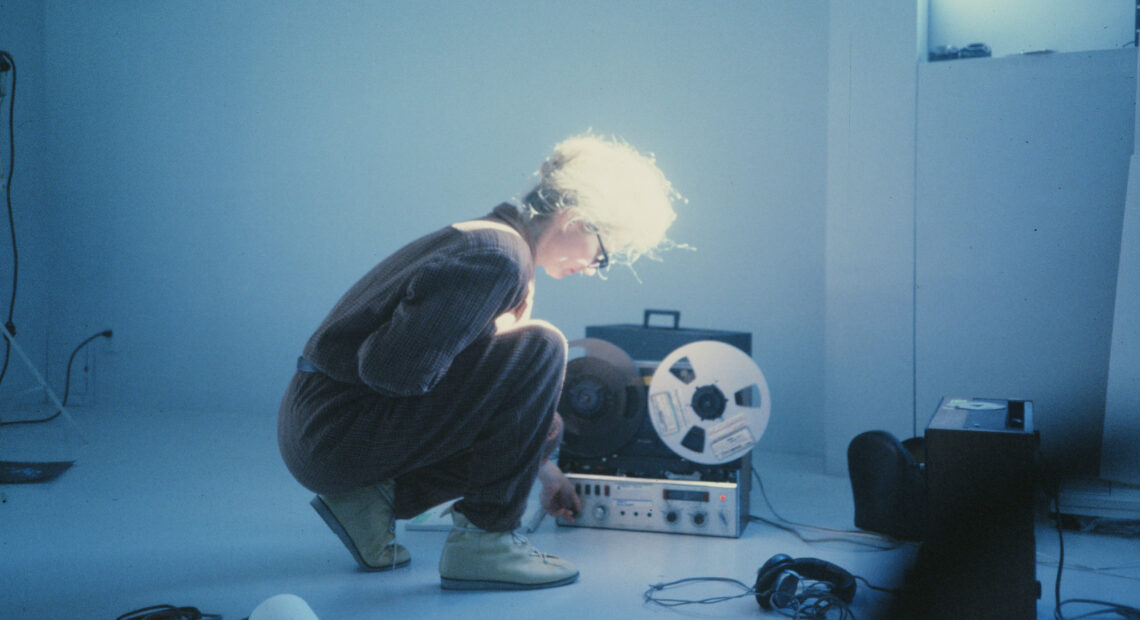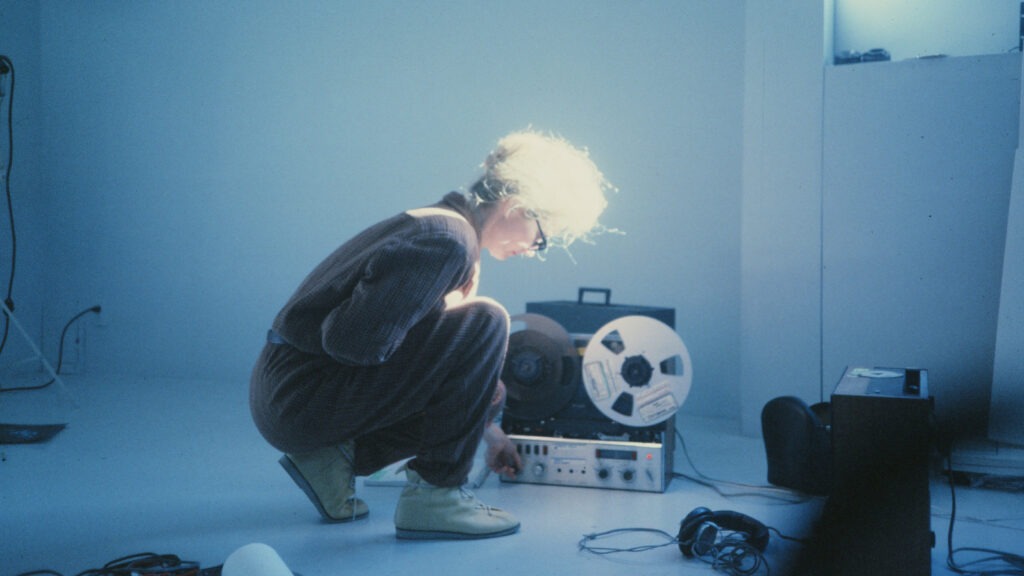
‘Sisters With Transistors’ Highlights Pioneers Of Electronic Music
LISTEN
BY ALLYSON MCCABE
In the 1920s, the Russian physicist Leon Theremin debuted an electronic instrument that could be played without any physical contact. Players stood in front of a box and waved their hands over antennas, summoning otherworldly sounds seemingly from thin air. The theremin might have been regarded as a passing novelty if not for the late Clara Rockmore, a virtuoso who helped to refine the instrument’s design, and wowed concert hall audiences with her performances.
Rockmore is but a single figure in a long line of women who have changed the shape and sound of modern music — often invisibly, says filmmaker Lisa Rovner. “I think when most people think of electronic music, in most cases they’ll picture men pushing the buttons, the knobs, and the boundaries.”

Maryanne Amacher, an artist and composer, is one of the women featured in the new documentary Sisters with Transistors. CREDIT: Peggy Weil/Courtesy of the artist
Rovner’s new documentary, Sisters with Transistors, corrects the record. Narrated by Laurie Anderson, the film celebrates the achievements of early pioneers such as Daphne Oram, who was hired by the BBC as a studio engineer in the 1940s. After hours, Oram began recording and manipulating sounds on magnetic tape, experiments that led to the co-founding of the BBC’s Radiophonic Workshop in 1958. Another pioneer, Delia Derbyshire, crafted sounds for nearly 200 BBC programs, including the iconic theme music for the sci-fi series Doctor Who, which debuted in 1963.
Modular synthesizers soon followed, and the development of the first commercially available models was guided by women. Wendy Carlos advised Robert Moog on the design of the first keyboard-based model, and introduced it to the general public on her 1968 album, Switched-On Bach, which sold more than a million copies. Suzanne Ciani realized the creative potential of a contemporaneous system designed by Don Buchla, which allowed artists to patch components together to control characteristics of sound such as pitch and timbre.
Juilliard-trained composer Laurie Spiegel describes these technologies as revolutionary. “The way composing was previously done was you wrote on a piece of paper, with a pencil, a set of instructions for someone else to make music,” she recalls. Free to realize her own creative vision, Spiegel programmed computer-based music generation systems while working as a researcher at Bell Labs in the 1970s. She was able to fashion entirely new sounds, as well as variations within sound itself, and share her music directly with audiences.
In 1977, Spiegel’s work caught the attention of NASA. Her musical interpretation of Johannes Kepler’s “Harmonices Mundi” was included on the Voyager Golden Records, launched into space to represent all of humankind. However, she is quick to point out that she is too often seen as an anomaly. Spiegel recalled being part of an active community of women who were affiliated with university-based and non-profit electronic music studios in and around New York City. Some of those studios, such as Harvestworks, are still around today.
In a sense, all music is “electronic” now, since digital technology is a ubiquitous part of how tracks and albums are made and consumed. But composer Yvette Janine Jackson, whose work explores historical events and current social issues, says there is still plenty of room for innovation and legacy building.
“My creative journey with electronic music has been centered around trying to find a voice,” says Jackson, “an African American voice, a queer voice, a female voice, the intersection of these voices.” She hopes tomorrow’s creators will have expanded access to tools, and receive greater recognition for their work.
Having premiered at SXSW in 2020, Sisters with Transistors has screened at prestigious U.S. and international festivals, including Sundance and the AFI. It is slated for national release on virtual cinema platforms early this spring.















